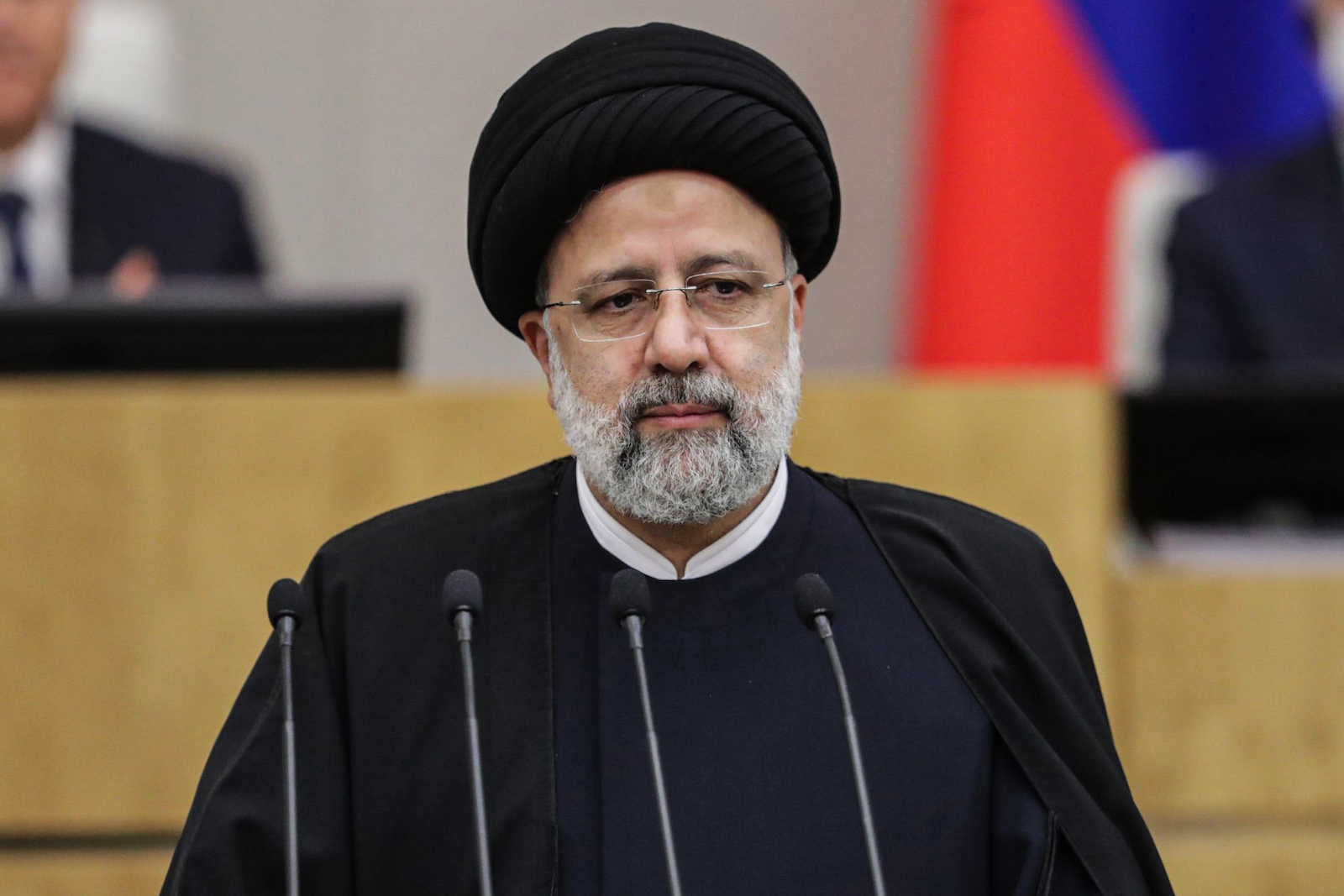
Iran is Trying to Jumpstart Economic Relations with Africa
Shortly after Iran made international headlines for its tit-for-tat exchange with Israel that risked further escalating regional tensions, it hosted the second Iran-Africa Economic Cooperation Conference in Tehran in late April. During the conference, Iranian President Ebrahim Raisi welcomed delegations from thirty African countries to discuss improving economic relations. As he had done when meeting with African leaders and officials in the past, Raisi invoked anti-imperialist sentiment and South-South solidarity by condemning the West for plundering Africa’s resources and by claiming that Iran altruistically aspired to advance its interests.
For Raisi and his government, the conference served three purposes. First, it sought to salvage Iran-Africa relations after they had suffered severe setbacks during the eight-year presidency of his predecessor, Hassan Rouhani. Second, the conference sought to show that Iran possessed allies and partners in Africa and beyond while continuing to confront economic sanctions and international isolation from the United States and Western Europe. Third, it was intended to upstage or compete with the World Economic Forum meeting that was hosted by Iran’s regional rival, Saudi Arabia, as it attempted to consummate a security agreement with Washington.
During the conference and since coming into office, Raisi made grandiose statements about strengthening economic relations with Africa and making them a priority – something Rouhani had also done despite disengaging from the continent in practice. Three years into his presidency and despite touring the continent in July 2023, Raisi did not sufficiently parlay symbolism into substance concerning reinforcing these relations. This reality was reflected by Iran’s trade imbalance with Africa, its diminished presence on the continent, and its limited diversification of African partners. At the conference, Raisi attempted to alleviate the concerns of African leaders and officials about the stalled status of economic relations. However, it remained to be seen whether the conference could constitute a turning point in their improvement.
Trade imbalance and diminished presence
At the conference, Raisi and other Iranian officials emphasized their desire to strengthen economic relations with Africa. To this end, they expressed their intention to increase Iran-Africa trade from over $1 billion in 2022 to $10 billion in three years. They blamed the low trade between both sides on economic crises and sanctions without identifying other obstacles that contributed to it.
One of these obstacles was the trade imbalance that persisted between Iran and Africa. From 1979 to 2021, Iran maintained a positive average annual trade balance with 85 percent or 39 of its 46 trading partners on the continent. The reason for this trend was that Iran exported higher-value petroleum products to Africa and imported lower-value primary goods and foodstuffs from it. For the continent, this trend caused deteriorating terms of trade and rising trade deficits. They were offset by Africa’s low trade with Iran, which averaged 0.29 percent of its total trade between 1979 and 2021. These figures remained below those of Iran’s regional rivals, Saudi Arabia, Turkey, and the United Arab Emirates.
Nevertheless, the trade deficits with countries like Iran remained a source of concern for Africa and incentivized it to form the African Continental Free Trade Area. For this reason and during the conference, Raisi’s Industry Minister, Abbas Aliabadi, stressed the significance of achieving with Africa a “win-win trade,” without specifying how it would be done. Instead, Raisi emphasized the products beyond petroleum that Iran could export to the continent in the fields of agriculture, industry, mining, infrastructure, transportation, medicine, science, and technology. He boasted that Iran could boost exports through ten thousand knowledge-based companies, without broaching their reluctance to engage with Africa due to their negative perceptions of the continent.
Another obstacle was Iran’s diminished presence in Africa due to a lack of institutions and individuals dedicated to promoting trade with it. During his presidency, Rouhani deactivated the African Headquarters in the Ministry of Foreign Affairs which had been responsible for expanding economic relations with Africa since 2005. At Iranian embassies in Africa, Rouhani and his government recalled trade counselors, who had been tasked with increasing public and private trade with the continent. These measures taken by Rouhani signaled to Africa that he had no intention of cultivating closer economic relations with the continent.
At the conference, Aliabadi acknowledged and addressed this issue by proposing to establish a secretariat in his ministry, the Ministry of Industry, Mines, and Trade, that would be responsible for boosting trade and economic cooperation with Africa. In addition to increasing the number of joint chambers of commerce and Iranian trade centers on the continent, Aliabadi announced plans to dispatch more commercial attachés to it. While in attendance, African leaders and officials may have wondered why Raisi and his government had not already adopted such measures after declaring economic relations with Africa a priority when first coming into office almost three years ago.
Limited diversification
On the sidelines of the conference, Raisi delivered a congratulatory message for the national day of South Africa. The country was by far Iran’s largest African trading partner and averaged 80 percent of its total trade with the continent between 1979 and 2021. Raisi also individually met with Apollinaire Joachim Kyélem de Tambèla, the prime minister of Burkina Faso, and Zimbabwe’s First Vice-President Constantino Chiwenga.
For Raisi, these meetings represented an opportunity to reinforce his rhetoric from the conference regarding anti-imperialism and South-South cooperation, as well as to show that Iran possessed allies and partners despite American and European efforts to isolate it. At the same time, they also demonstrated a limited diversification of African trade partners beyond second and third-tier ones.
Politically, Iran possessed enduring ties with Zimbabwe. The country was consistently a destination for Iranian presidents during their tours of Africa, including Raisi’s official visit to Harare in 2023. As a fellow so-called rogue state, Zimbabwe diplomatically supported Iran in multilateral institutions, helped it circumvent sanctions, and served as a source of uranium for Tehran’s nuclear program. Consequently, it was a country where Iran’s anti-imperialist rhetoric resonated, even if its Islamist ideology gained limited traction among the Christian-majority population.
That said, Zimbabwe was a second-tier partner in terms of trade and investment. From 1979 to 2021, it ranked twelfth among Iran’s forty-six African trading partners, with an average annual share of 0.48 percent of its total trade with the continent. At the same time, it was one of the few African countries that periodically maintained a trade surplus with Iran by exporting various primary commodities and capital and manufactured goods. Furthermore, as of 2022, Iran’s regional rival, the United Arab Emirates, ranked as Zimbabwe’s top export partner and its fourth largest import partner. Like Iran, Zimbabwe’s trade and investment potential was stymied by its status as a lower-middle-income country, though with a significantly lower GDP, and a pariah state that confronted stringent sanctions.
Iran’s political relations with Burkina Faso were less longstanding but equally friendly. During the presidency of Mahmoud Ahmadinejad, Iran delivered development assistance to Burkina Faso while it was a non-permanent member of the United Nations Security Council, where pivotal votes were held on resolutions regarding Iran’s nuclear program and human rights record. In the areas of religion and security, Iran converted citizens to Shiism and monitored Sunni militants inside the Muslim-majority country. In 2018, as Iran confronted maximum pressure and increased sanctions from the United States, Rouhani’s government held parliamentary talks with Ouagadougou to reinforce bilateral relations and reduce Iranian isolation in Africa. Raisi continued this policy by welcoming the country’s foreign minister, Olivia Rouamba, to Tehran in 2023.
Economically, and compared with Zimbabwe, Burkina Faso was even less significant of a trading partner for Iran. Between 1979 and 2021, it ranked thirtieth among Iran’s African trading partners, with an average annual share of 0.057 percent. Similar to Zimbabwe, the United Arab Emirates ranked as Burkina Faso’s second-largest export partner. For Iran, Burkina Faso’s trade and investment potential was constrained by its status as a low-income country, even without confronting sanctions.
In a notable shift from his predecessor’s approach, Raisi is trying to reengage with the continent. These initiatives, while echoing the themes of anti-imperialism and South-South solidarity, appear to serve largely as a strategic play to lessen Iran’s global isolation and gain an upper hand over regional adversaries. Despite these diplomatic overtures, the actual enhancement of Iran-Africa economic ties has been limited. Trade between Iran and African countries continues to be hampered by a significant trade imbalance, Iran’s reduced footprint across the continent, and a lack of diversification in its African partnerships.
As President Raisi nears the end of his first term, the impact of these summits remains uncertain. Observers are left questioning whether these efforts signify a genuine shift towards effective cooperation or merely perpetuate the previous administration’s pattern, where symbolic gestures dominated substantive economic progress.

